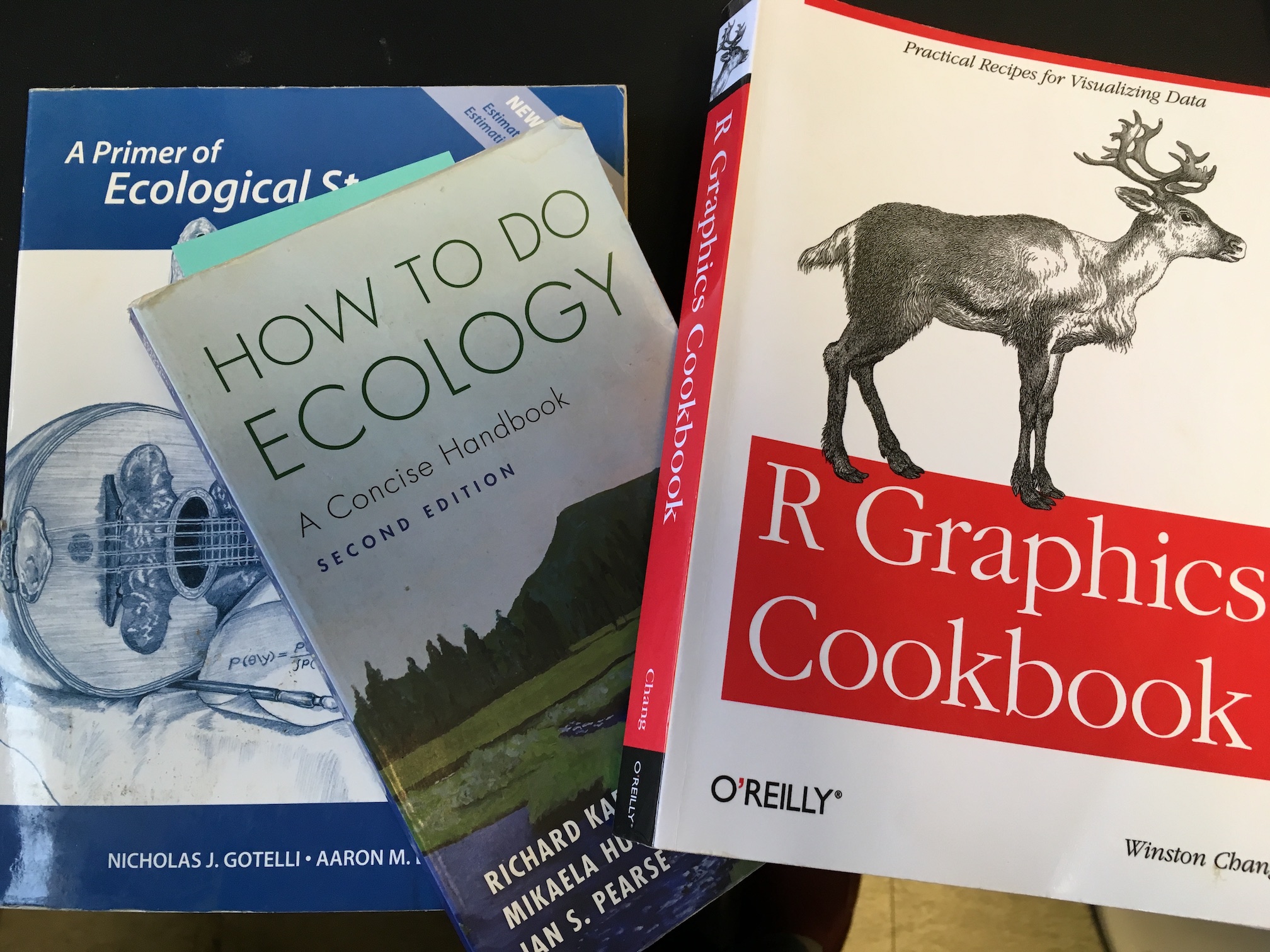Here’s a list of books that I came back to time and again as a graduate student.
Tomorrow is my exit seminar and the official end of my PhD at UC Davis!
It feels so long ago that I began graduate school and to know it’s ending is a strange feeling indeed. Alongside this ending is the new beginning of my postdoctoral position!
As I gear up to begin my new position, I begin my seemingly yearly tradition of re-reading some books that I found particularly helpful at the start (or that I wish I knew about when I started!!). Some of the books are general, but most are Ecology-focused. I thought sharing them with others might prove a useful exercise.
Enjoy!
How To Do Ecology
by Rick Karban, Mikaela Huntzinger, and Ian Pearse
This book, which was originally a series of handouts for Rick’s graduate class, and the contents within it are absolutely indispensible for new grad students. This has become a yearly ritual of mine since my third year of graduate school, but I wish I had known about this book from the start (fwiw my new advisor is a co-author of the book but I didn’t plan that!). I actually started writing this post because I was re-reading this book before beginning my new projects. Do yourself a favor and get a copy. Mine was a gift from Rick, which is either a nice gesture or a way of really telling me I was doing it all wrong.
Primer of Ecological Statistics
by Nicholas Gotelli and Aaron Ellison
OK. So this book, and stats books in general, I can’t really get myself to read cover to cover in some sort of yearly ritual…but I was assigned to read this book for my qualifying exams and I find myself coming back to it time and again. This book doesn’t cover specific details of any ecological analysis, but I think it provides a fantastic starting point for getting an overview. You can then take that knowledge to find specific tutorials, papers, etc online that can give you the details. Over the past few years if I was faced with a new data set, I would grab this book, flip to the relevant sections, and then fan out from there. I also have Gotelli’s A Primer of Ecology, but I haven’t gotten as much use out of that after the initial read.
Writing Science: How to Write Papers That Get Cited and Proposals That Get Funded
by Joshua Schimel
There are a lot of books about how to write scientific papers. I keep coming back to Writing Science by Joshua Schimel. The best part of ecological research (to me at least but I’m guessing I’m not alone) is the data collection process, the field work, the fun of working with good people, and maybe even the data visualization and analysis. Writing can be the painful part at times. But I think if you have a strategy, writing can be a lot more rewarding. I revisit this book when needed. I also follow La Method Brookoise for my outlining and writing, which you can find here.
R Graphics Cookbook
by Winston Chang
Given all of the wonderful online resources for learning R and packages like ggplot, this book doesn’t get quite the attention it used to from me, but I found it was really indispensible when I was starting out learning R graphics. It really helped to have a physical book that was organized in a familiar way. I think when you become a bit more familiar with a programming language it becomes easier to Google whatever it is you’re looking for, but the heft of a familiar book to flip through when you don’t even know what it is you want is a big help. I have other programming books, but the R Graphics Cookbook has definitely been the most used.
Getting What You Came For
by Robert Peters
Before starting my master’s degree I was given a copy of Getting What You Came For and read that as well. It was certainly useful and is more general than How To Do Ecology, but it might be really outdated now and I haven’t read it in some time.
If you have any other books that you think I might like or want to suggest to others, message me!





